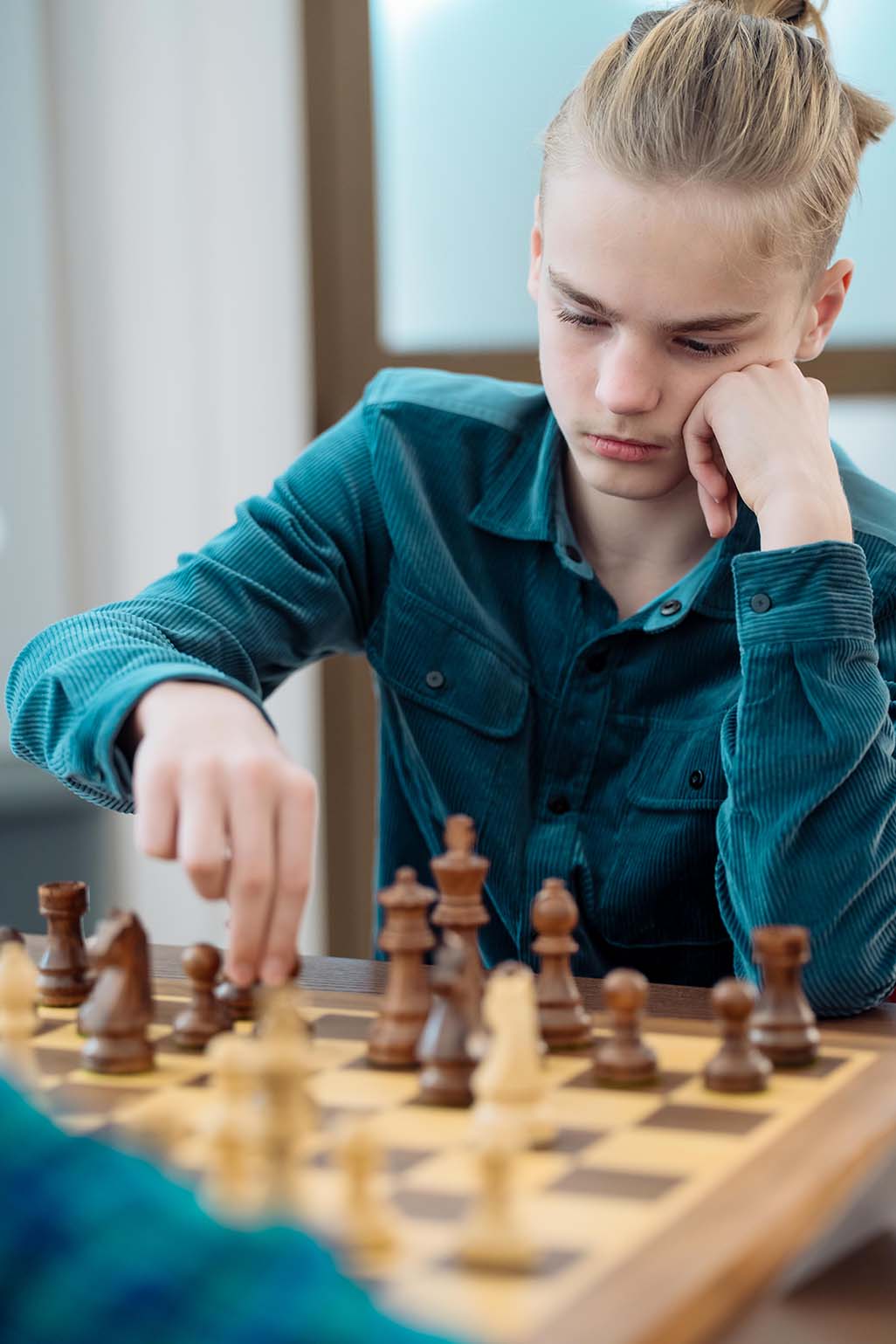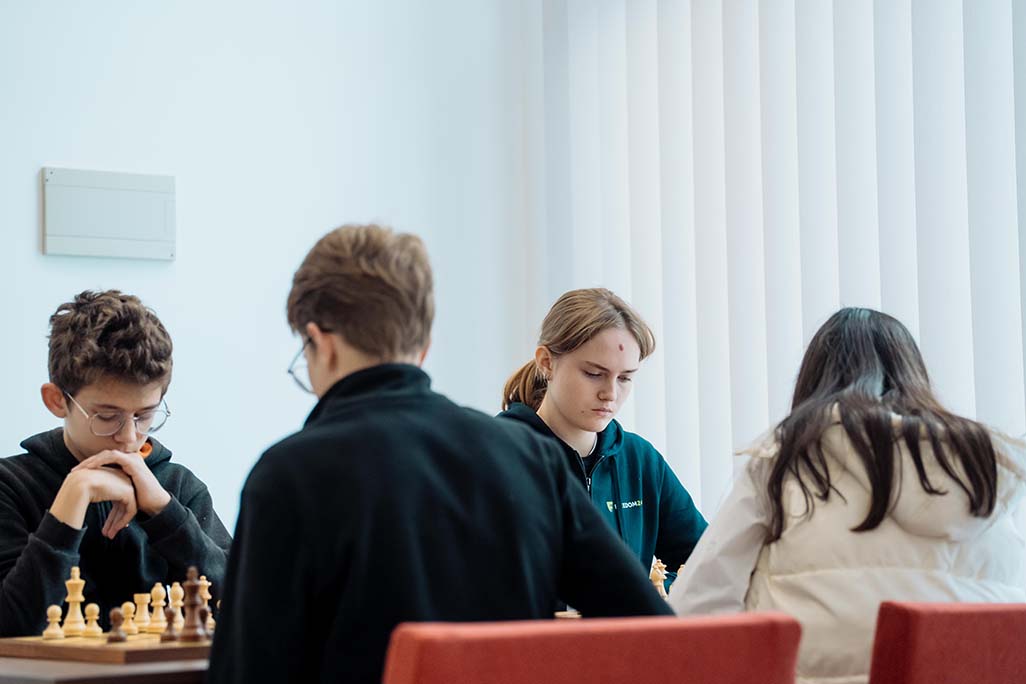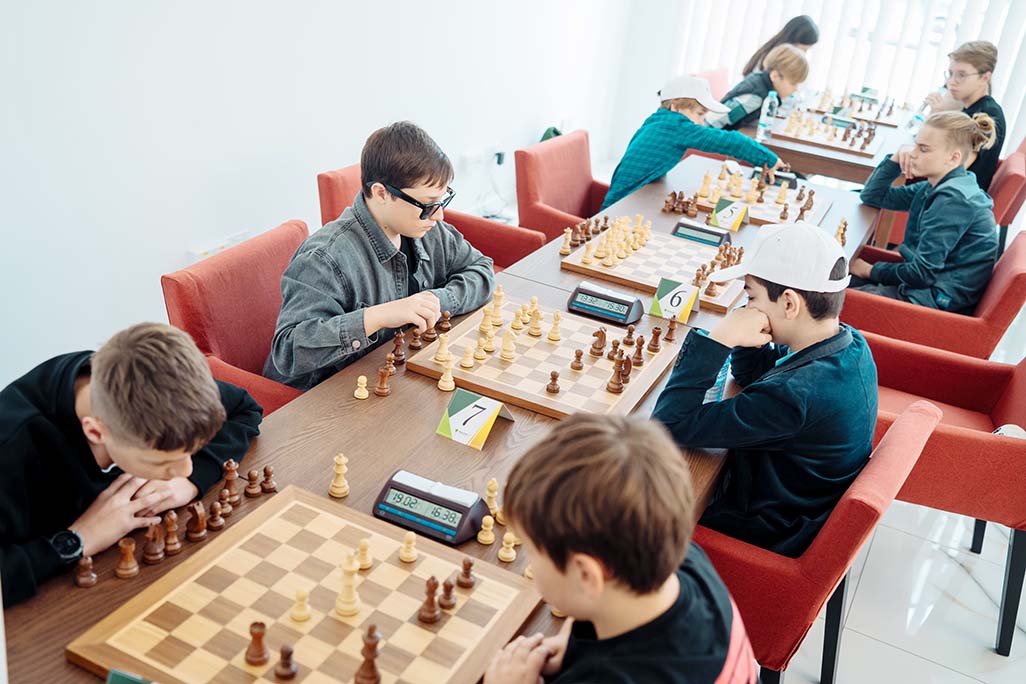On 23 February, the Cyprus Open Chess Championship ended in Nicosia. It was attended by 90 players, 52 of whom were juniors. Chess is becoming more and more popular in Cyprus and its national team is getting stronger and stronger thanks to young talents. Many parents are asking the question “How and where to learn to play chess in Cyprus?” Here is a detailed (as much as possible within one article) answer.
By Andrey Avsitidiysky
WHERE TO START?
If you are taking your first steps in chess, you will need a book for beginners. Time-tested classics are Emanuel Lasker’s “How to play Chess” and Ilya Maizelis’s “Chess”.
Lots of letters? Then start with the tutorials on chess.com and the chessable.com platform. The latter uses an interval repetition method that allows you to memorize 95% of the material.
The best option is to use both approaches under the guidance of an experienced coach. A good coach will create a personalised training course that will allow you to develop to your full potential.
Chess is the best workout for your brain. Someone who has been playing chess successfully for many years tends to have an improved memory, excellent concentration and increased ingenuity. A child can only benefit from chess.
Andreas Kelires, the first Cypriot grandmaster
START AT THE END!
Studying endgames seems boring to many children, but it is impossible to do without it. Without knowing the basic patterns of endgames, you will not understand which positions to aim for and which ones to avoid.
“Mastering endgame theory is not difficult in principle. All you need is to know a small number of exact’ positions, as well as the most important rules, evaluations and techniques”, writes Mark Dvoretsky in the preface to his fundamental work “Endgame Manual”.
In fact, there are not many chess players who have read Dvoretsky’s 535-page book and learnt everything it says. One of them is the 16th world champion Magnus Carlsen, who can win positions that seem to be absolutely tied. If you want to be like Carlsen, improve in the endgame.

You can start studying the final stage of the game with Yuri Averbakh’s book “What You Need to Know About the Endgame” and continue with Alexander Panchenko’s “Theory and Practice of Chess Endings”. In English there is an excellent work by Jacob Aagaard, “A Matter of Endgame Technique”.
“One of the books that really impressed me was Mikhail Shereshevsky’s ‘Endgame Strategy’. I highly recommend it to any player who wants to succeed in chess”, advises Alexandros Isaakidis, three-time vice-champion of Cyprus.
POSITIONAL AWARENESS
1. A well-defended king.
2. Excellence in the center.
3. Space advantage.
4. Activity of the figures.
5. Healthy pawn structure.
Any good coach has probably explained the five basic principles of positional play to his students many times. The problem is that not all children absorb this information properly. Often, they need vivid examples from other areas of life in which they feel like a fish in water.

About 10 years ago, an experienced mentor and a good friend of mine despaired of explaining to his mentee that his pieces should be active and asked for my help. It turned out that the pupil understood the activity of pieces as any moves with them. In a position with an exposed opponent’s king, the teenager’s queen got bogged down on the other flank.
“You don’t only play chess, do you?” I asked.
“I also play basketball!” The teenager was happy to change the subject.
“Who are you on the team?”
“Centre-forward.”
“That’s great! And your main objective?”
“Attack the opponent’s basket and score goals”.
“Who do you think is the centre-forward in chess?”
“The queen of course!”
“And the opponent’s basket?”
“His king”.
“So, your queen must attack someone else’s king. Right?”
“Yeah”.
“What was he doing in the game your coach was talking about?”
“Attacked a knight and a bishop”.
“I mean, he went after the minor pieces. And now we’re back to basketball. It turns out that instead of attacking the basket, you were running along the sidelines and trying to get to know the cheerleaders”.
My companion’s face brightened. He laughed and assured me that he understood.
The best book to recommend to those wishing to excel in positional play is “My System” by Aron Nimzowitsch.
COMBINATION
“I’ve noticed that quite a few young players pay too much attention to studying openings. In my opinion, this is an obstacle to progress. It is much more useful to improve the art of calculation and to solve combinations that lead to typical mate finals”, said Alexandros Isaakidis.
Two books that a chess player intending to achieve success in combinational play must read are Victor Khenkin’s “1000 Checkmate Combinations” and John Nunn’s “1001 Deadly Checkmates”. They are devoted to methods of finding mate combinations and how to realize them.
DEBUT
If your opening repertoire is narrow, it is easy to prepare for a game with you using a chess engine (Stockfish, Komodo, etc.). Ideally, your opponent should not know what your first move will be or how you will respond to e4 or d4.
However, it is not necessary to get carried away with rote learning of opening variants. It is much more important to understand the basic principles of the beginning of the game: the fastest development, capturing the centre, ensuring the safety of the king, countering the opponent’s plans.
According to Mikhail Shereshevsky, the importance of opening preparation increases at the master level, and at the grandmaster level it becomes of paramount importance. For beginners, however, the main thing is the ability to assess the position correctly.
There are players who can memorize 20-move variations. If you see your opponent making moves quickly and confidently in the opening, go for a side variation that will throw him off his home training and force him to think for himself.
PROFESSIONAL ADVICE
Marina Cherkasova, children’s trainer
1. Play against opponents stronger than you.
2. Do not play with the computer.
3. Learn from the professionals.
4. Work a lot on your own at home, beyond the threshold of the chess school — analyze your games without a computer, solve problems.
5. If you want to become a strong player, you need to work hard and not give up in the down periods that everyone has.
Konstantinos Michaelides, seven-time champion of Cyprus
It is very important to love what you do. If you love it, it is easier to devote time to it, and you’ll get much more pleasure and satisfaction from it. But the most important thing is to never give up or lose heart. If you follow the right path, the road will probably be long and difficult. You must practice and try as much as you can. If you don’t see any difference from day to day, it doesn’t mean that there is no progress. When success comes, you’ll realize how important every day is. It’s all about chess and life in general. And, of course, you must solve a lot of problems. Chess is 99% tactics and constant calculation of options.
Alexandros Isaakidis, three-time vice-champion of Cyprus
Don’t be afraid to lose. Chess is such a fun and creative game that there is no need to be upset when you lose. Instead, treat every defeat as an opportunity to learn from analyzing the game.
CHESS CLUBS AND SCHOOLS IN CYPRUS
Limassol
Freedom24 Chess Academy — Artem Sadovsky, tel. 99-176561
Limassol Chess Club — Giorgos Amvrosiadis, tel. 99-649483
Shah Mat Masters — Marianna Stefanidi, tel. 94-056174
Paphos
Pafos Chess Club — Giorgos Antoniou, tel. 99-537501
White King Chess School — Arkadios Koulaxidis, tel. 96-489983
Marina Cherkasova Chess Academy — Marina Cherkasova, tel. 96-379790
Larnaca
Larnaca Chess Club — Pavlos Constantinou, tel. 99-515399
Chess With Knarik Online Academy — Knarik Mouradian, tel. 96-445422
Nicosia
Arion Chess Club — Panayiotis Dionysiou, tel. 99-491575
Kaissa Chess Club — Pavlos Skouroupathis, tel. 97-683493
Nicosia Chess Club — Panayiotis Roussis, tel. 99-040924
O.FI.S — Pambos Zacharoplastis, tel. 95-517145
SIMBA Trainers Academy — Mark Bryan, tel. 99-250797
Ayia Napa
Famagusta Chess Club — Pigasios Hadjinicolaou, tel. 99-340674
- Information about personal trainers can be obtained by calling any chess club in the city where you live.
- Several clubs and schools are not only active in their own cities. For example, O.FI.S has offices in Larnaca and Limassol, and Shah Mat Masters in Nicosia. There are plans to open a branch of the Nicosia-based Arion Club in Limassol soon.
The author of the article is the owner of the news site evropakipr.com, Cyprus Chess Champion (2010) as part of the Limassol team, bronze medalist of Cyprus Chess Open 2024.






Click here to change your cookie preferences